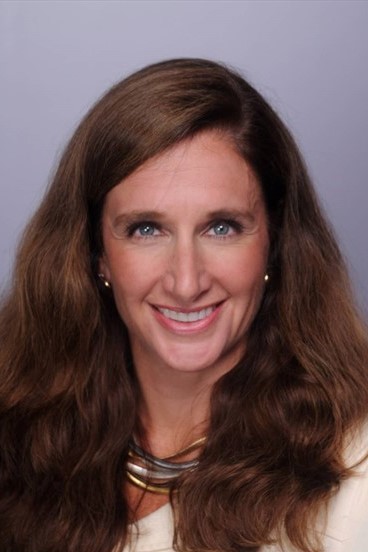
Dawn Porter Eringis has 25+ years of experience encompassing major pharmaceutical to startup biotechnology companies. She has been involved in Commercialization, Business Development, Fundraising, IR/PR, and Strategic Planning, while co-founding two Biotech companies: Locus Pharmaceuticals and PolyMedix.
Here is what Dawn had to say when we asked her about the science of business:
GenHERation®: What skills did you develop as an engineer that you have also applied to your business career?
Dawn Porter Eringis: Definitely skills, such as problem solving and time management, but math has been the most relevant and probably the most important. As an undergrad majoring in Chemical Engineering, math was a large part of what I studied, which made sense—I expected all of the math. However, when I went to Wharton for my MBA, I was surprised to learn how much of a role math played in business. You need a fundamental grasp of math, including accounting and statistics, so you understand the financial aspect of the business. Especially now, when jobs involving artificial intelligence and big data are so prominent, it is important to really know math.
GenHERation®: If you are a scientist by training, how can you market yourself when you are applying for opportunities outside of your field?
Porter Eringis: I think the best way is to highlight your experiences that relate to the role you are applying for. These experiences don’t need to come from jobs. They can take the form of side projects or volunteer hours. For instance, if you are a scientist who wants to transition to retail, highlight the ways you have connected with fashion. Do you have design sketches you can share? Did you volunteer with Career Wardrobe? Highlight these experiences on your resume and during an interview. If you want to work in an industry, but don’t have the necessary experience, you can always get it. You could enroll in a Master’s program or take an online course. Just know what your goal is and take a few steps back to understand how you can get where you want to be.
GenHERation®: What is the guiding principle that you use to know when it is time to begin a new project or transition to a new company?
Porter Eringis: You could put together all of the spreadsheets in the world, but the plan will never turn out exactly as you thought it would. All companies have different strengths and weaknesses. Big companies are a training ground. You learn in different departments and have mentors, but you don’t have a lot of autonomy and don’t get to make the big decisions. At a startup, every decision you make determines whether or not the company will live another day. The highs are higher and the lows are lower, and while you might have a title, you will be doing a little bit of everything. Therefore, you have to know what is most important to you right now—your priorities will change over time. Think about what you need in a career to make you happy. Is it people, mentorship, money? You do your job for many hours a day. Your experience with a company will be very different depending on whether you like it or not, so if you are unhappy or unfulfilled this is probably a good time to make a transition. You also need to trust your instincts. I have made a lot of career decisions rooted in a gut feeling.
GenHERation®: How have you refined your communication skills to become an effective fundraiser and negotiator?
Porter Eringis: The Biotech and Pharmaceutical industries require millions and millions of dollars, so you have to be able to fundraise. There are two parts to effectively fundraise. The first part is knowing your audience. What does the venture capital firm you are meeting with care about? All firms have something that is particularly important to them—figure out what this is. The second part is having your three-minute elevator pitch prepared. With this pitch, you need to be clear and concise, and make your argument. Supplement this pitch with a slide deck to visually articulate your story, value, and ask. Most people often tune out after the first three to four slides, so make sure these are captivating and get right to the punchline.
GenHERation®: What was the most valuable lesson you learned starting and running your own companies?
Porter Eringis: The ability to explain science to nonscientists is extremely significant and valuable. The people who invest in STEM companies often don’t have technical knowledge, so being able to clearly explain scientific concepts, processes, and innovations will get you far.
Dawn Porter Eringis has 25+ years of experience encompassing major pharmaceutical to startup biotechnology companies. She has been involved in Commercialization, Business Development, Fundraising, IR/PR, and Strategic Planning, while co-founding two Biotech companies: Locus Pharmaceuticals and PolyMedix. Dawn has initiated and concluded over $500 million worth of corporate licensing deals, as well as successfully written more than 25 grants resulting in approximately $30mm in funding for her last company, PolyMedix. Currently, Dawn consults to small and startup biotech companies as well as tech transfer offices, and is the CBO of Integral Molecular. Dawn started her career as a chemical engineer at Rohm & Haas before getting her MBA in Marketing, Strategic Planning, and Finance at the Wharton School. Since then, her career has included positions in business development, strategic planning, commercialization, marketing, HEOR, and product management. She has held positions of increasing responsibility at Pfizer, Procter & Gamble, Johnson & Johnson, Merck, Guilford Pharmaceuticals, Locus Discovery, and PolyMedix. She holds an MBA from Wharton and a BS degree in Chemical Engineering from the University of Pennsylvania. She currently is on the Board of Directors of the St. Christopher’s Day School, a guest lecturer for several Penn Engineering school classes (EAS 546 and EAS101), on the Advisory Board of the University of Pennsylvania BioEngineering Department, and past Chair of the Trustee’s Council of Penn Women.



Comments (0)